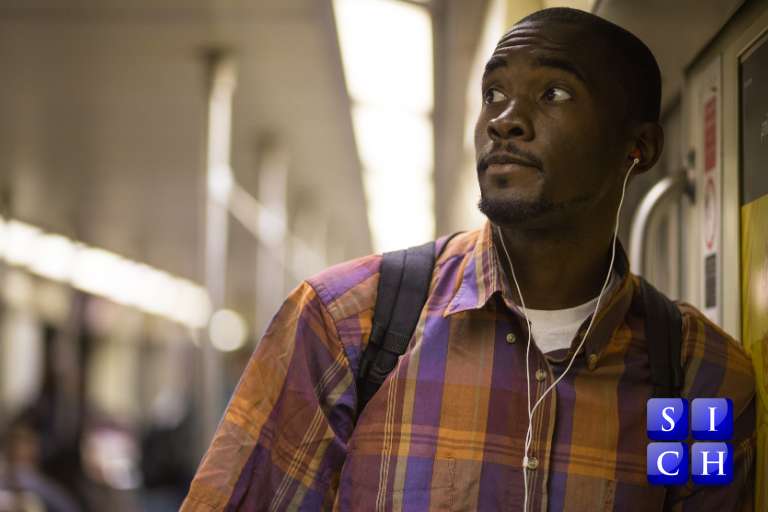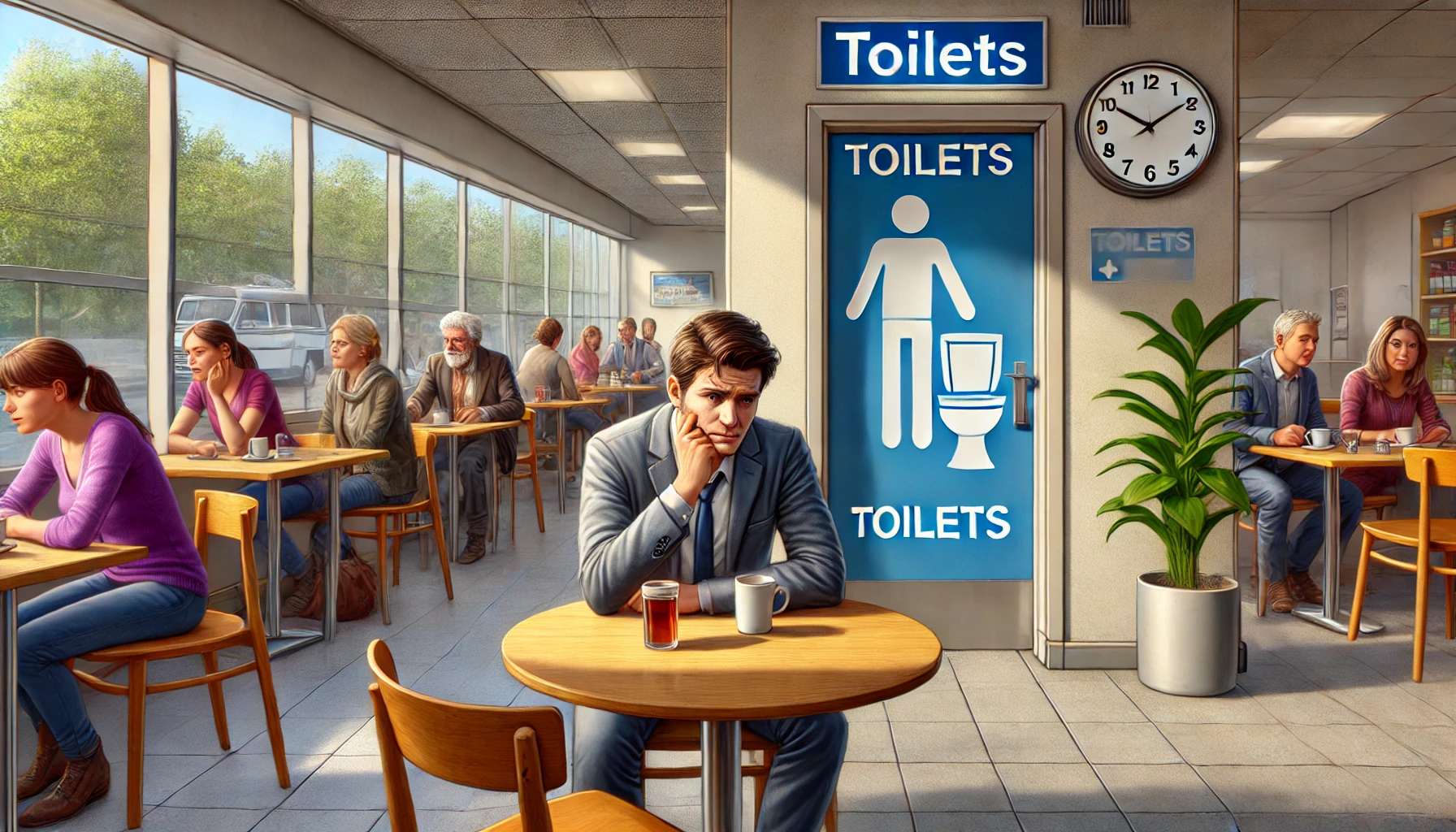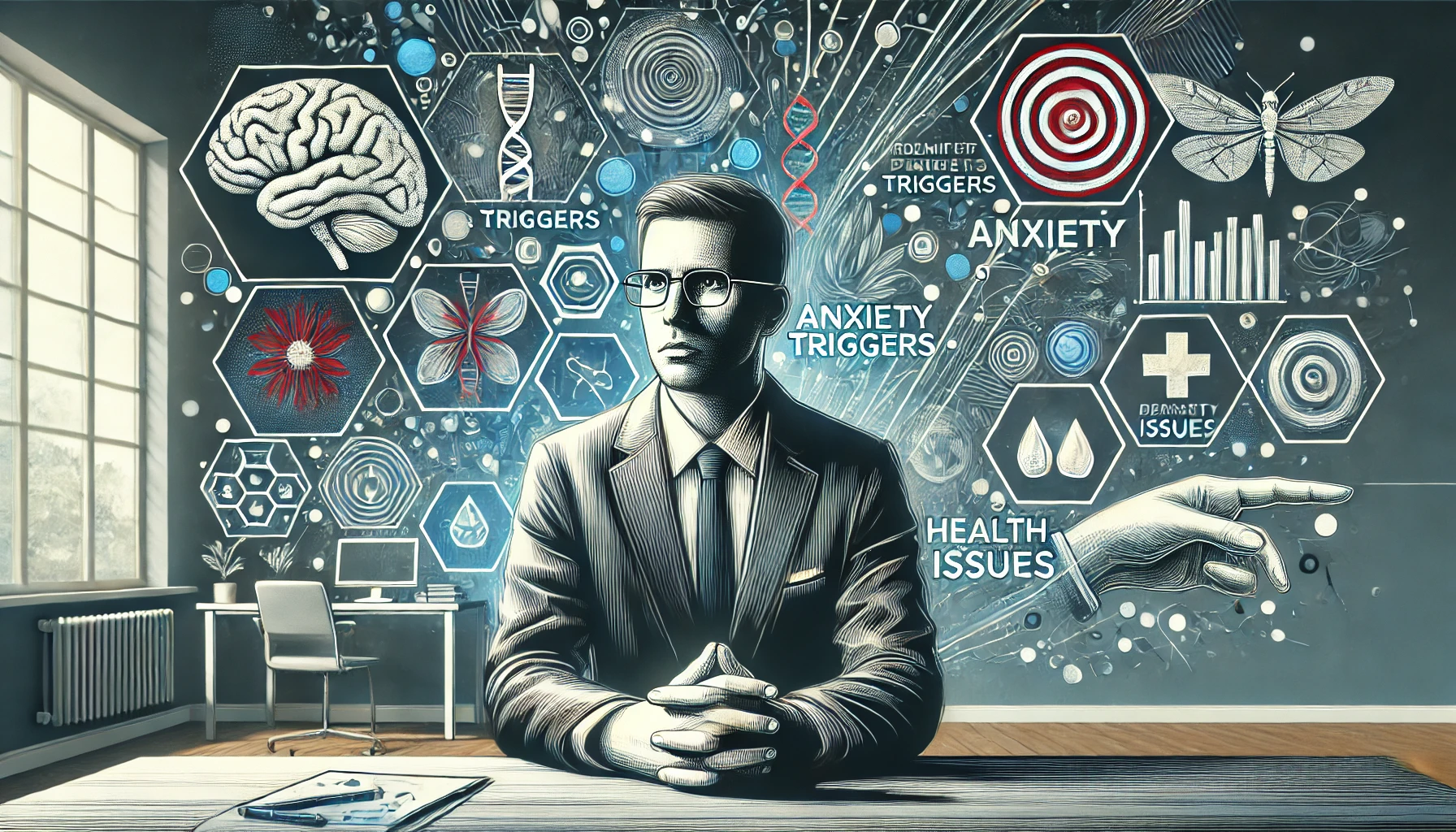Have you ever experienced the fear of needing the toilet at the most inconvenient times?
If so, you’re not alone. Many people struggle with the fear of needing the toilet in uncomfortable situations. Whether it’s during a long car journey, a social event, or an important meeting, the anxiety about finding a toilet can feel overwhelming.
This condition is known as toilet anxiety or bladder anxiety, and it can have a significant impact on a person’s quality of life.

On this page
Understanding and Overcoming This Common Anxiety
In this article, we’ll explore the causes, symptoms, and triggers of the fear of needing the toilet, and discuss practical strategies to overcome it. Understanding this common but often hidden issue is the first step towards letting go of the fear and thus letting your mind forget all about needing a toilet. Read on and discover how to remove this fear together.
It’s important to recognise that the fear of needing the toilet is not an isolated anxiety on its own, but rather a significant aspect of a broader condition known as toilet anxiety. While the fear of urgently needing the toilet may seem like the central concern, it is actually just one part of a larger web of anxiety that can include various triggers, emotions, and physical reactions.
Toilet anxiety involves the fear of being in situations where access to a toilet might be limited or uncertain. The fear of needing the toilet often serves as the most immediate and obvious symptom, but it’s closely linked to deeper concerns, such as fear of public embarrassment, fear of losing control, or even past traumatic experiences related to bathroom access.
In essence, the fear of needing the toilet is a major component of toilet anxiety, but the anxiety itself is more complex, involving a mix of social, emotional, and physical factors that all contribute to the overall sense of distress.
The Impact of the Fear of Needing the Toilet on Daily Life
While it may seem like a minor issue to some, the fear of needing the toilet can have a profound effect on daily life. This anxiety can lead to avoidance behaviours, where people alter their routines to avoid situations where they fear not having access to a bathroom. Individuals suffering from toilet anxiety might limit social outings, cut back on food and drink, or avoid travelling long distances.
Take our toilet anxiety assessment to see where your level of toilet anxiety is right now.
This fear can create feelings of isolation and frustration, as it often prevents individuals from engaging fully in their lives. The constant worry about access to a toilet can be mentally and physically exhausting. By understanding the root causes and symptoms of this anxiety, we can begin to address the problem more effectively.
Causes of the Fear of Needing the Toilet
The fear of needing the toilet is a complex condition, often stemming from a mix of emotional and physical factors. Some common causes include:
1. Past Traumatic Experiences
A previous negative experience, such as not being able to find a toilet in time or experiencing a public accident, can create a lasting emotional impact.
However, it doesn’t always have to be an actual incident for this fear to take hold. Often, a close call, a moment where you almost didn’t make it to a toilet, can be just as powerful in creating anxiety. In that split second, your mind may begin to catastrophise, imagining the worst-case scenario of what could have happened. For many people this raises the frightening question: can anxiety cause diarrhea? The worry that the body might react uncontrollably under pressure feeds directly into toilet anxiety.

This internal dialogue, combined with vivid visualisations of the potential embarrassment or distress, can leave a deep impression on your subconscious. You might think things like, “What if I hadn’t made it?” or “That could have been a disaster.” Over time, your mind starts to replay these scenarios, reinforcing the fear and convincing your subconscious to avoid similar situations at all costs.
The subconscious mind, designed to protect you from perceived danger, begins to treat these close calls as if they were actual events. As a result, even though nothing bad actually happened, the fear becomes ingrained. The body’s response is heightened in future situations that feel even remotely similar, creating a cycle of avoidance. Everyday activities, like going to a meeting or attending a social event, suddenly feels daunting because your mind is focused on avoiding that imagined scenario.
This process of catastrophising, where your mind magnifies a close call into a full-blown disaster in your head, conditions your subconscious to believe that the risk is real. The fear becomes so intense that the subconscious seeks to avoid any possibility of the situation repeating itself, even if it was only a “what if” moment.
2. Health Conditions
For individuals with health issues such as irritable bowel syndrome (IBS), urinary incontinence, or an overactive bladder, the fear of urgently needing a toilet can be especially heightened. These conditions can make toilet trips unpredictable and urgent, contributing to a constant feeling of unease and worry. As a result, people with these conditions may feel the need to always be near a toilet, which can lead to severe anxiety and avoidance of social situations.
For many, toilet anxiety is deeply connected to social anxiety and the fear of being embarrassed in front of others.
The worry of having an accident or needing to excuse oneself in a public setting can trigger heightened anxiety, making events like concerts, family gatherings, or even work meetings a source of dread.

4. Loss of Control
A central aspect of the fear of needing the toilet is the fear of losing control. For those who experience this anxiety, not being able to manage bodily functions in public can feel terrifying. The need for control, coupled with the unpredictability of when the urge will strike, fuels the anxiety and leads to a constant state of hyper-awareness.
Common Triggers for the Fear of Needing the Toilet
Certain situations can amplify the fear of needing the toilet. These triggers vary from person to person, but some common ones include:
1. New or Unfamiliar Locations
Being in a new environment can heighten anxiety, especially when the availability of toilets is unknown. Whether on holiday, attending a party, or visiting a new city, the fear of not being able to locate a restroom can lead to constant worry and discomfort.
2. Long Journeys
Travelling for extended periods, whether by car, plane, or train, can provoke bladder anxiety. People may become overly focused on the lack of toilet options, which can lead to pre-emptive trips to the toilet and constant monitoring of where the next bathroom will be.
3. Busy or Crowded Places
Public spaces like shopping centres, festivals, and concerts often have limited or crowded toilet facilities. The fear of being stuck in a long queue or unable to reach a bathroom in time can exacerbate toilet anxiety, making it difficult to relax or enjoy the event.
4. Stressful Situations
High-pressure environments such as work presentations, exams, or social events can trigger the fear of needing the toilet. Stress and anxiety are closely linked, and the physical response to stress, such as increased heart rate or stomach tension, can make someone feel like they need the toilet urgently, even if it’s not a real physical need.
Physical and Emotional Symptoms of Toilet Anxiety
The fear of needing the toilet affects both the mind and the body. Recognising the symptoms can help in understanding the full impact this anxiety has on an individual’s daily life.
Physical Symptoms:
- Racing Heartbeat: The fear of not being able to find a toilet can cause a rapid heartbeat, especially when someone feels trapped in a situation without easy access to a bathroom.
- Stomach Cramps or Discomfort: Anxiety often manifests in the stomach, causing cramping or discomfort, which can mimic the need to use the toilet, even when there’s no urgent need.
- Sweating or Trembling: Physical symptoms of anxiety, such as sweating or trembling, are common, especially in social situations where the fear of needing the toilet is high.
- Frequent Urges: The constant worry about needing a toilet can trick the body into feeling like it needs to go more often than it actually does, creating a vicious cycle.
Emotional Symptoms:
- Fear of Embarrassment: People with toilet anxiety often experience a deep fear of being embarrassed in front of others if they can’t find a toilet in time.
- Avoidance of Social Situations: Many people with this fear may avoid social events or places where they feel toilet access is limited, leading to isolation and frustration.
- Overplanning: Those with bladder anxiety might plan every detail of an outing, where the toilets are located, how long it takes to get there, and how much they can drink—just to avoid the fear of needing the toilet.
Specialised Approach to Overcoming the Fear of Needing the Toilet
While some general techniques can sometimes offer temporary relief for those dealing with toilet anxiety, they rarely address the root causes of the problem. That’s why Paul Howard’s specialised approach, developed over 25 years at The Surrey Institute of Clinical Hypnotherapy, is specifically designed to tackle the fear of needing the toilet head-on.
Paul has worked with thousands of clients worldwide, honing his techniques to provide a targeted, effective solution for individuals suffering from this anxiety. His approach is built on years of experience and is designed to go beyond typical relaxation methods. Instead, Paul’s work focuses on the deep-seated triggers that cause toilet anxiety, providing long-lasting change.
He has developed a keen ability to quickly identify inappropriate patterns and triggers, even in the most complex cases.
Why Paul Howard’s Approach Stands Out
Unlike general hypnotherapy, which may only offer limited relief, Paul Howard’s treatment plan is tailored specifically to the unique challenges of toilet anxiety. His expertise allows him to guide individuals through a series of targeted sessions that uncover and address the subconscious fears driving the anxiety.
Paul Howard’s approach to treating toilet anxiety is grounded in his extensive experience working with thousands of clients. Over the years, he has developed a keen ability to quickly identify inappropriate patterns and triggers, even in the most complex cases. Whether a client’s anxiety stems from past experiences, long-standing health issues, or deep-seated fears, Paul is adept at pinpointing the root cause of the problem. He has also compiled some interesting toilet anxiety statistics.
Because of his expertise, Paul can often detect triggers that others might overlook, making his approach particularly effective. While not every case is successful, we believe his success rate with treating this specific anxiety far exceeds that of any other treatment plan available today.
Thousands of individuals have experienced life-changing results through Paul Howard’s work, freeing themselves from the constant worry of finding a toilet. The effectiveness of his techniques has made him the most sought-after specialists in this field.
For more information or to read reviews from The Surrey Institute of Clinical Hypnotherapy clients, visit sich.co.uk/reviews.
Other Techniques for Managing Toilet Anxiety
While Paul Howard’s approach offers a specialised and effective solution, some individuals may find additional support through general coping techniques. These methods may help manage the physical symptoms of anxiety but often fall short of providing long-term relief.
- Mindfulness and Relaxation Techniques: Mindfulness, deep breathing, and muscle relaxation can help calm the body and reduce immediate anxiety symptoms.
- Challenging Negative Thoughts: Reframing catastrophic thoughts, such as the fear of not making it to a toilet, can sometimes reduce the intensity of the anxiety.
- Gradual Exposure: Gradual exposure to triggering situations, like social gatherings or long journeys, may help desensitise individuals to their fear, although it’s often not enough to eliminate the root cause of the anxiety.
Embracing a Life Free from the Fear of Needing the Toilet
The fear of needing the toilet can feel overwhelming and all-consuming, but with the right guidance and techniques, it is possible to regain control. For those struggling with this anxiety, Paul Howard’s specialised approach at The Surrey Institute of Clinical Hypnotherapy offers a path to lasting relief. His tailored techniques have helped thousands of people overcome their fears and live without the constant worry of needing the toilet.
By addressing the root causes of the anxiety and providing practical tools for long-term management, Paul Howard’s work has transformed the lives of countless individuals. Whether you’ve been struggling with this fear for years or have recently noticed it creeping into your daily life, there is hope for a brighter, anxiety-free future.
To learn more about Paul Howard’s approach and read client testimonials, visit the toilet anxiety page.

